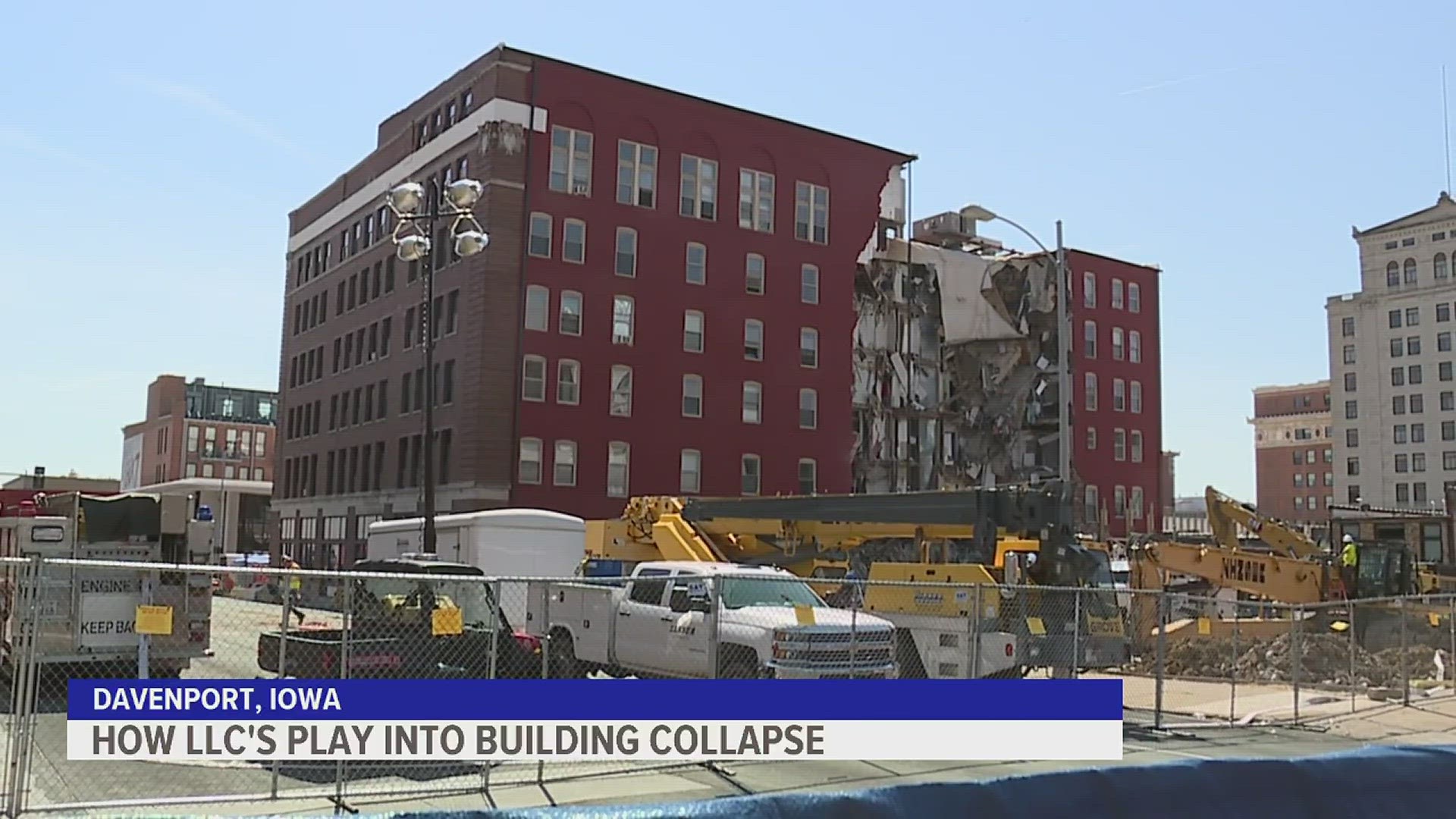DAVENPORT, Iowa — The partial collapse of the apartment in downtown Davenport is raising questions on the layout of its ownership and how liable companies or individuals could be in a lawsuit.
Media coverage has widely described the building as being owned by businessman Andrew Wold. Technically a limited liability company, Davenport Hotel, L.L.C. owns the building, which Wold has direct involvement with.
Wold has a similar setup for other properties in the Quad Cities area, such as those owned by Andrew Wold Investments, LLC, or 2200 11th, LLC which is for a property in the Village of East Davenport currently embroiled in a legal dispute.
News 8's Jonathan Fong spoke with Illinois real estate lawyer David Nelson on what an LLC is, how they're typically used in the real estate business and how liability might be handled in this kind of building collapse scenario.
Fong: "Give us a basic explanation of what a limited liability company or LLC is."
Nelson: "An LLC is like a bucket — you can put whatever you want into it, and then the bucket holds whatever is in there. It can do a variety of actions, including buying and selling property, operating a business — doing a variety of things like a person would but then it's not a person."
Fong: "How is an LLC typically used within the context of real estate or property management?"
Nelson: "We would typically have at the closing of a property or later on, maybe we would deed it over — we would have the LLC be the owner instead of a person."
Fong: "So if there's a liability situation, that avoids your personal funds from being attacked, right?"
Nelson: "Right. If there's some kind of claim that goes beyond the assets that were owned by the business, the idea is that claim is not going to expand into the personal holdings of either the members of an LLC, or the managers if there's some sort of liability established to them."
Fong: "So it would be unlikely that any owners or investors would have to pay for claims?"
Nelson: "Typically, we're going to see that the claims are limited both to the insurance that's carried and the value of the assets. And when we look at the value of the assets, it's going to be both the land that's underneath, as well as the building and not necessarily both, depending on how they structured that ownership."
Fong: "So the insurance might pay out a considerable amount?"
Nelson: "We don't know what the coverage is on this particular building, or on the land or how it's structured... but typically, the liability limits for this kind of commercial property would be at a minimum, many, many millions of dollars."
Fong: "What would it take to pierce that kind of limited liability shield?"
Nelson: "There is always available, a remedy where you can try to pierce any type of limited liability entity... though usually, to pierce something like that is going to be something egregious — it's going to involve outrageous conduct. Today, you would need something much more egregious where there was some callous disregard for safety. There might be fraud, there could be a variety of things, and it would be based on the act — not speculation."

